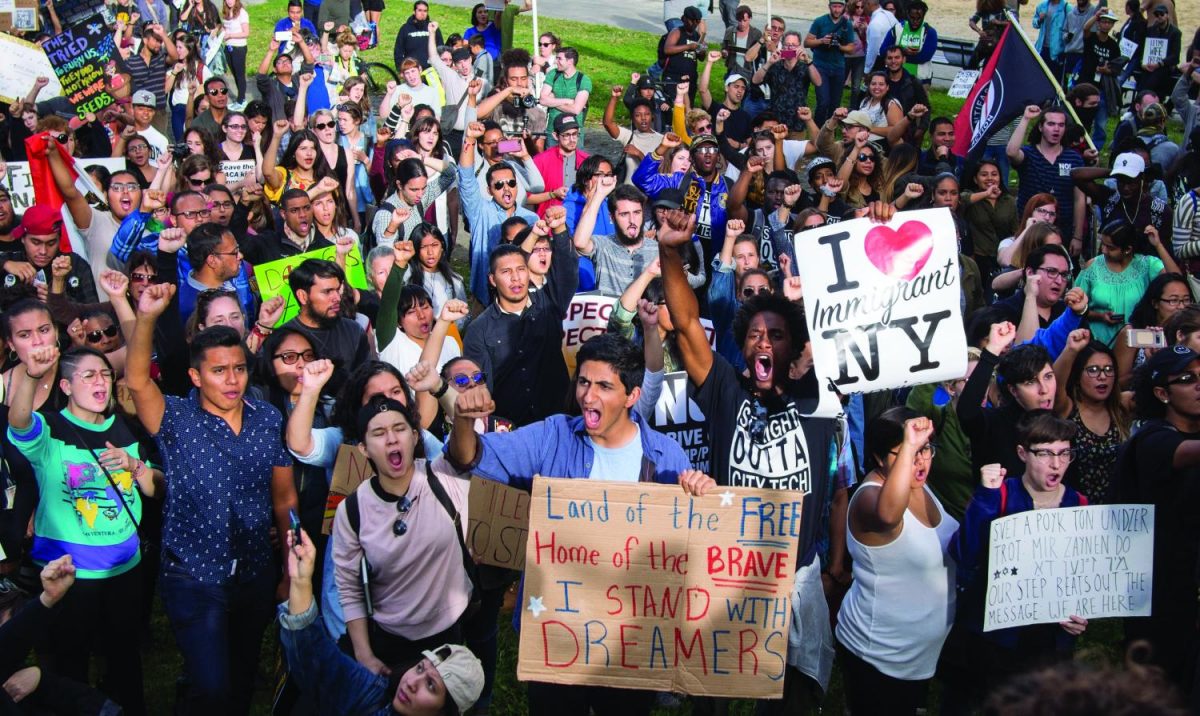Trump adminstration’s DACA decision affects students
6,000 Minnesotan youth enrolled in DACA await developments
On Sept. 5, the Department of Homeland Security made an annoucment with far reaching consequences for many students in Minnesota: the Obama-era Deferred Action for Childhood Arrivals (DACA) program will be phased out by March 5, 2018.
DACA is a program that allows undocumented youth to work and live in the United States by providing them protection from deportation and a work permit. The rescinding of DACA raises the question of what will happen to the over 800,000 people enrolled in the program, including 6,000+ youth in Minnesota.
The Trump administration made the decision to phase out DACA based on the reasoning that was implemented illegally. The Dream Act, a bill with a similar purpose to DACA, was introduced to the Senate on Aug. 1, 2001 and was brought before Congress several times, but was never passed into law. President Obama announced the DACA program on June 15, 2012 and on Aug. 15, 2012 the United States Citizenship and Immigration Services began accepting applicants. The Trump administration cites DACA as unconstitutional because the same policy in legislative form, known as the Dream Act, had been previously rejected by congress.
According to the Department of Homeland Security, new applicants will not be accepted during the phasing out of DACA, but recipients accepted prior to Sept. 5 will have their renewal requests judged on an individual basis. In a press briefing, Press Secretary Sarah Sanders stated that no permits will be expiring in the next six months, permits will remain active for up to two years and that President Trump expects Congress to pass a legal and permanent solution to replace DACA.
Minnesota and several other states are filing a lawsuit against the Trump administration over this decision.
“The federal government’s rescission of DACA violates the promises made to these young people,” Minnesota Attorney General Lori Swanson said.
Marlen Cervantes is on of the several DACA recipients that attend SMSU. Cervantes has lived in the United States with her family since she was 1 year old, but is not a legal citizen. She considers the United States her home. Cervantes expressed concern that DACA won’t remain a priority and that no replacement will be made before March 5, 2018.
“I knew DACA wasn’t permanent, but it still feels like a slap in the face. It’s like the government is playing games with people,” Cervantes said.
Cervantes interned for Senator Al Franken over the summer and has plans to intern on Capitol Hill next summer. Without DACA, Cervantes won’t be able to work, get healthcare or legally drive. Cervantes encourages other Dreamers to contact their local representatives and to not give up hope.
Interim Chancellor Malhotra released a statement and a reminder that Minnesota State campuses will continue to be a welcoming and supportive environment during this time. President Connie Gores also stated that SMSU will continue to support students affected by this policy change.
A DACA forum will be held Oct. 3 on campus in CC Upper Ballroom. The forum is open to the community and will have speakers talking about how to cope with the DACA recession and informing Dreamers of what rights they have.

